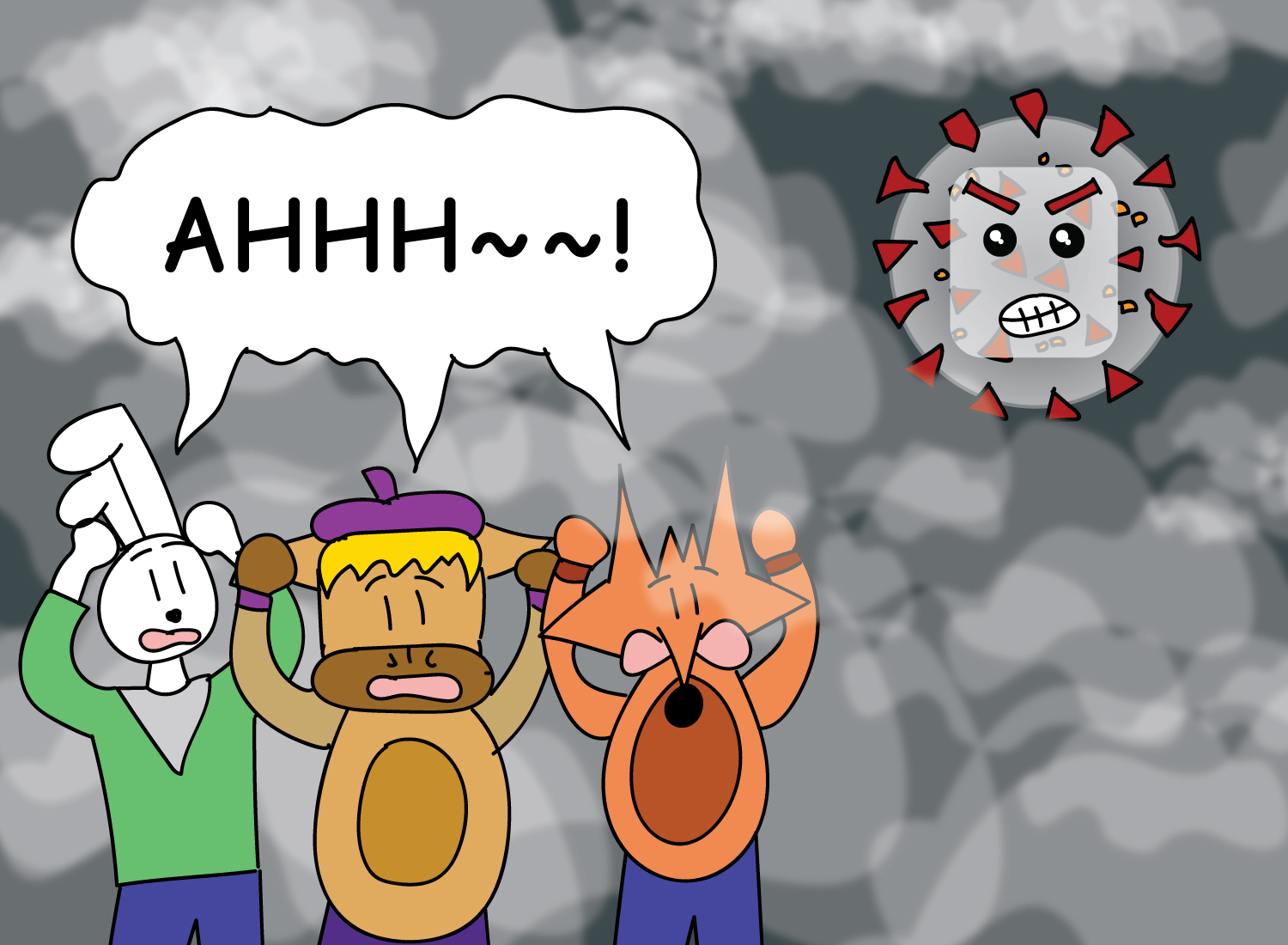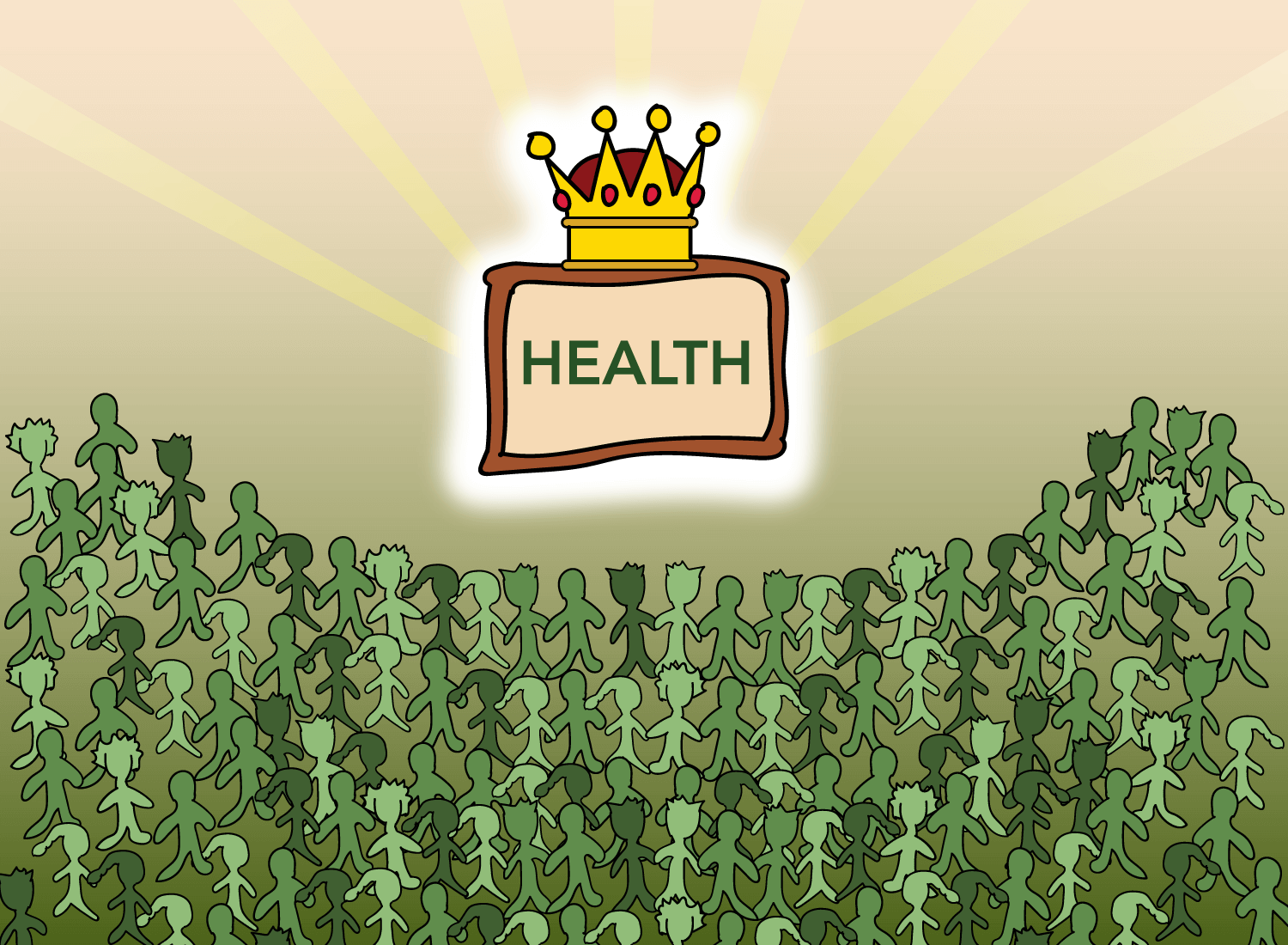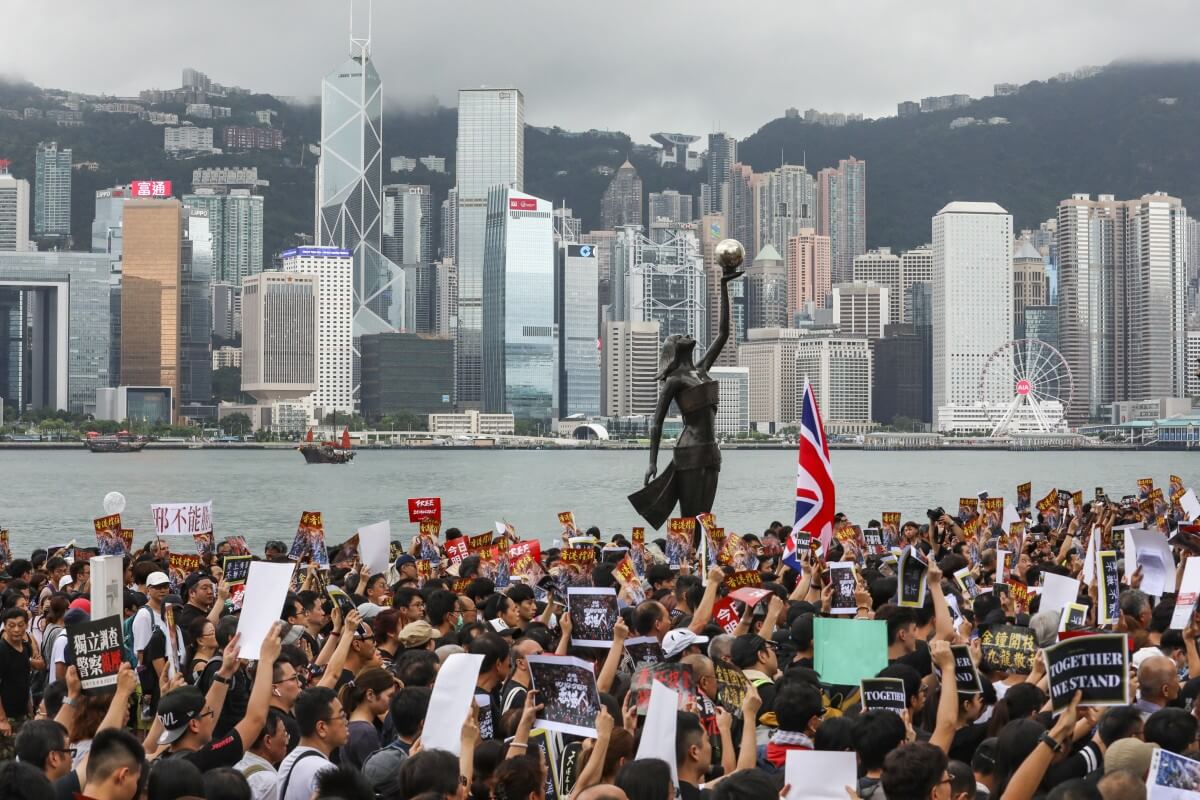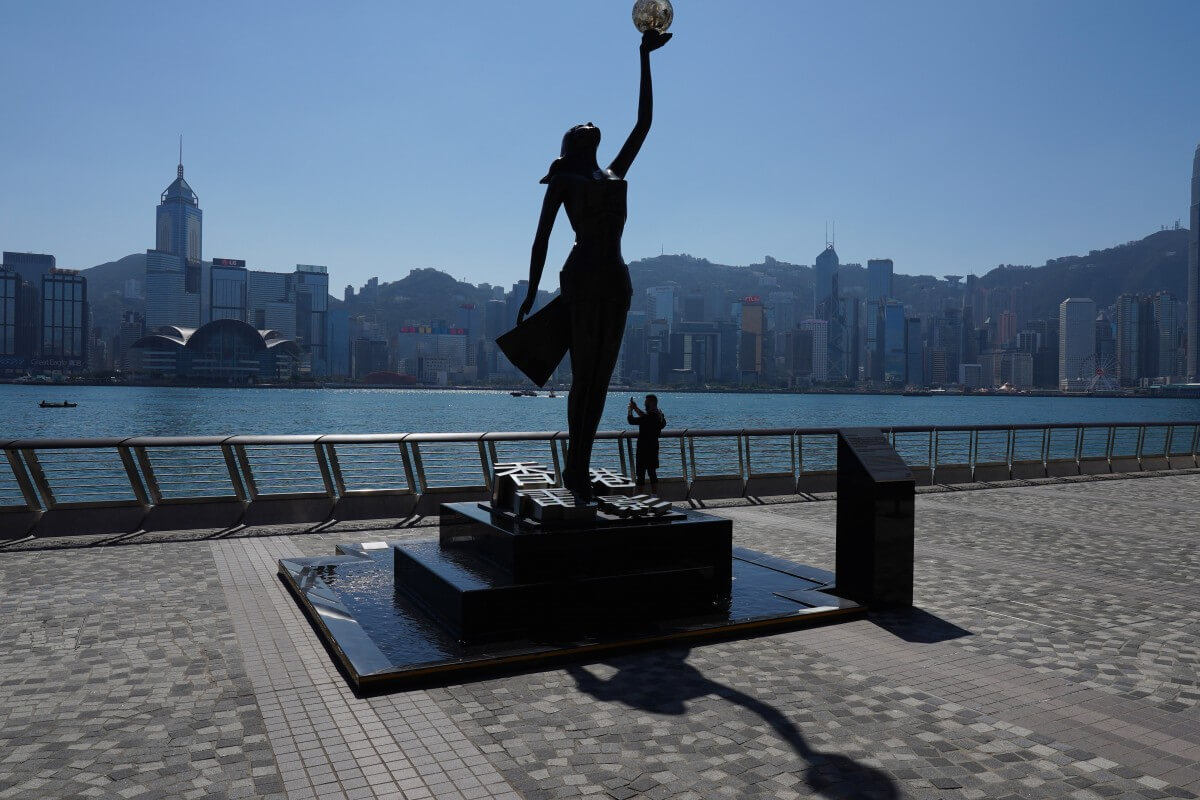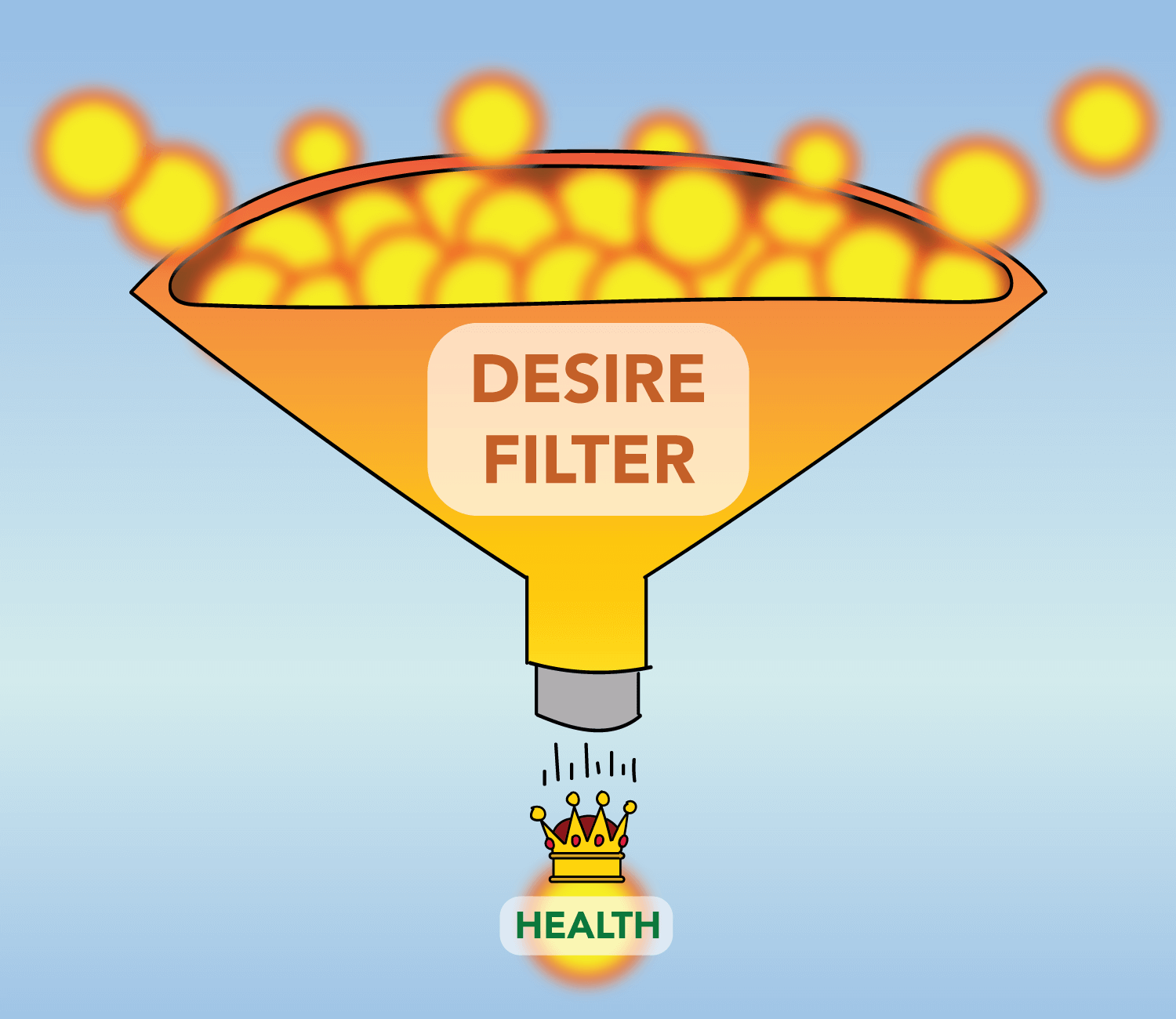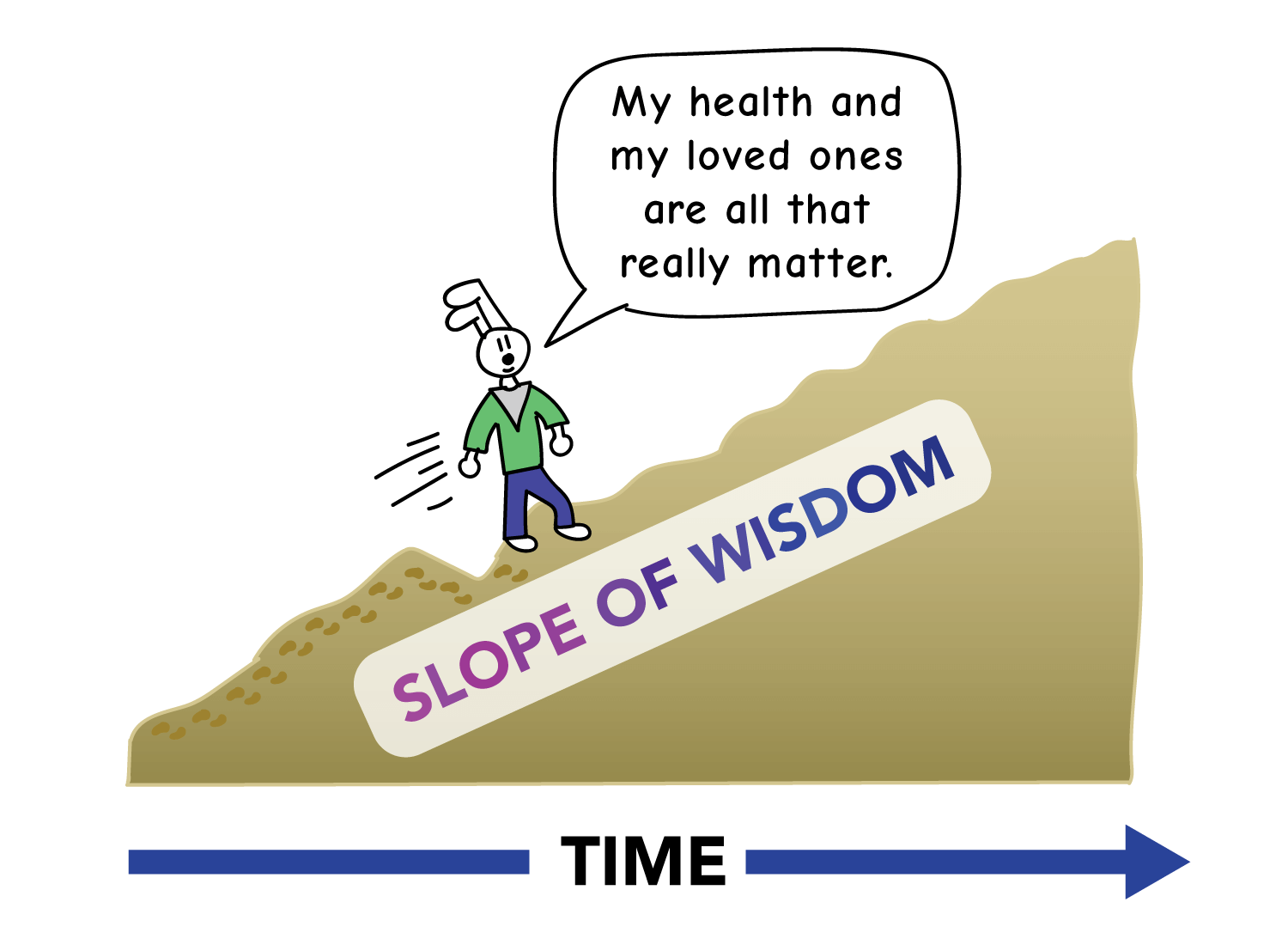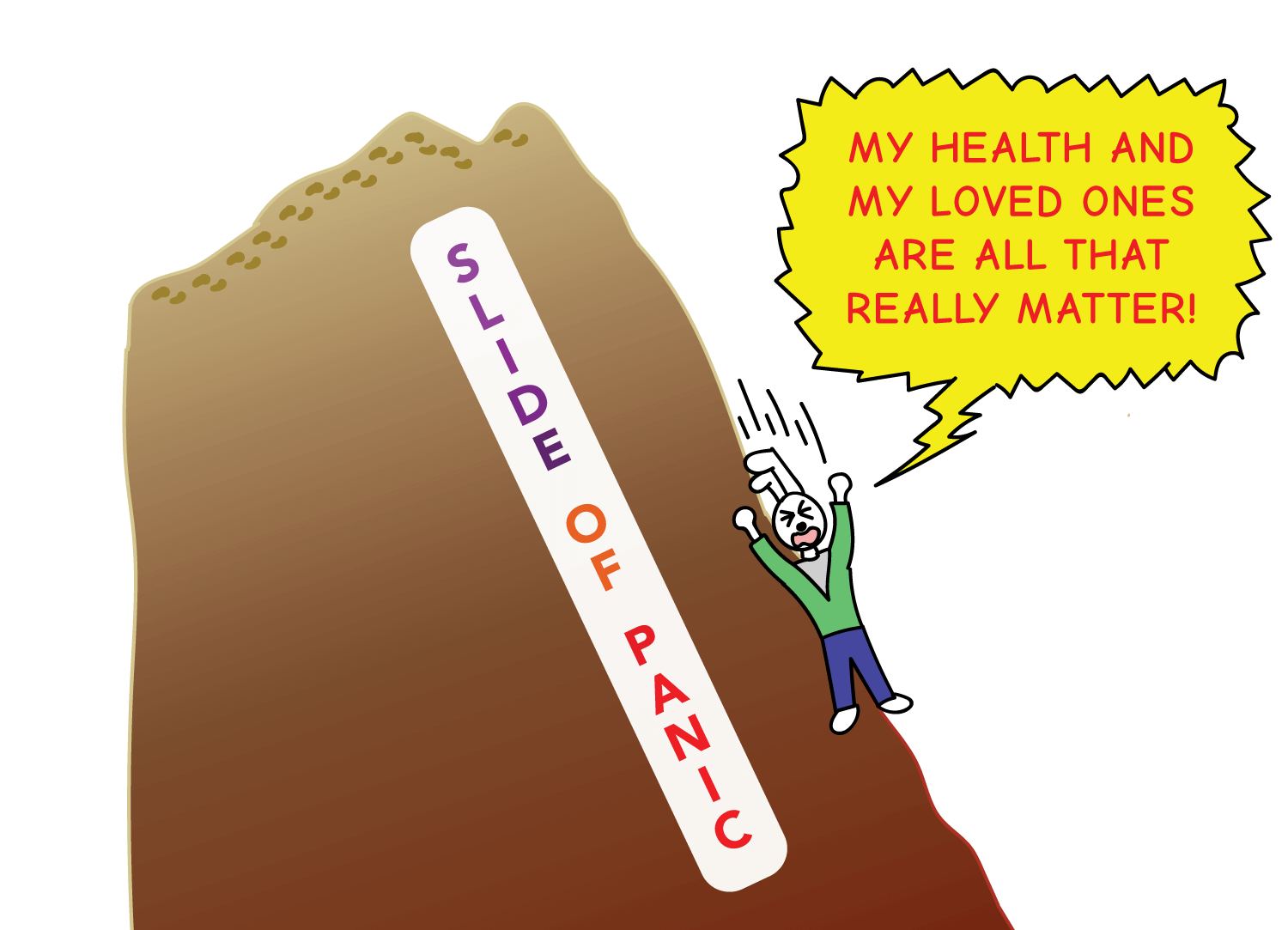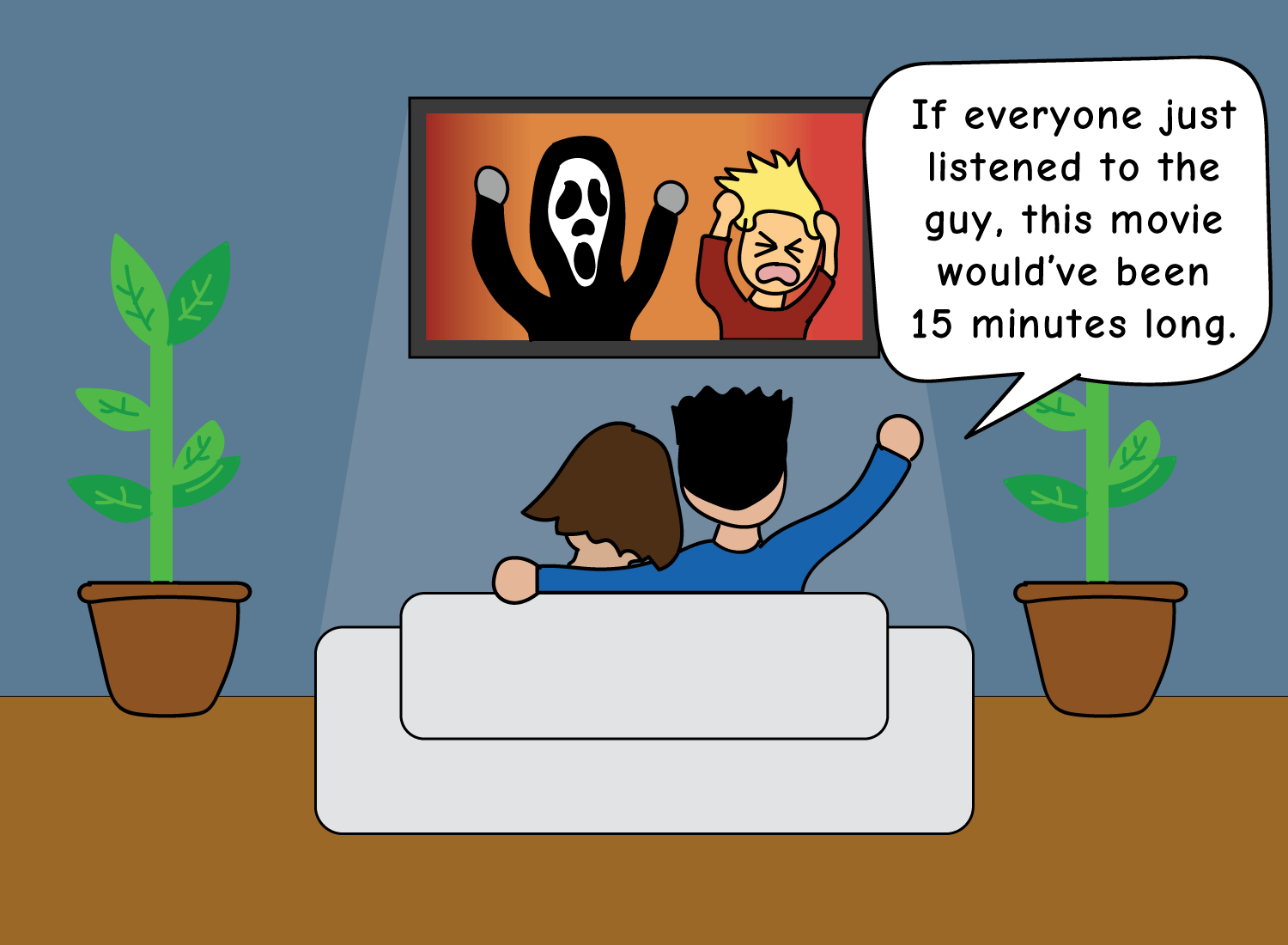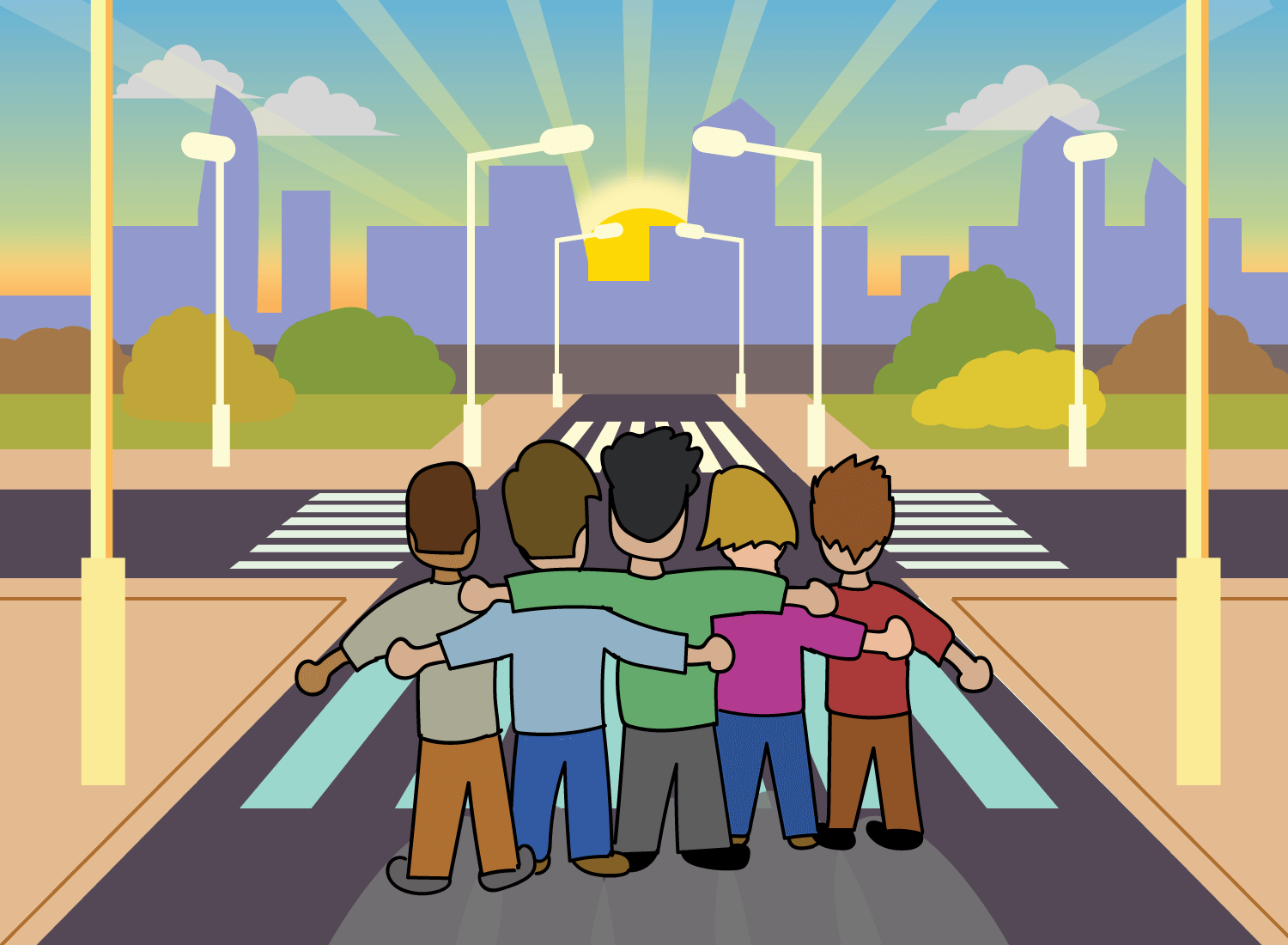Finding Peace Within the Pandemic
What happens when we are united in struggle, but the common enemy is not another group of humans?
Instead of a war being fought on battlefronts, you get a war that wages within the borders of the mind. There is no enemy to gun down, no tribal faction to defeat. The struggle is internal, and the great difficulty is learning how to face a future where uncertainty does not evoke curiosity, but imminent danger.
The coronavirus is here, and it continues to hover over everything we do in our lives. The hope is that the virus hasn’t touched your body, but it most certainly has occupied your mind.
The events of the last few weeks have been unprecedented – it’s likely that they will be preserved in history books that have not yet been written (hopefully no more than a few sentences will be required). However, the way that we internalize these significant changes will differ across the spectrum of people we know.
For example, many people will view the coronavirus’ impact on the stock market and be overwhelmed at how it’s destroying their portfolio. But when you think about the fact that only 55% of Americans invest in the market, you’ll realize that this paramount fear for one person is a negligible one for another.
The same goes for restaurant owners, people who work in the travel industry, event organizers, etc. This is undoubtedly a trying time, but their fears may only be shared by those who can viscerally relate to making a living in an impacted space.
In the end, there is only one concern that we all truly share:
The preservation of our physical health.
What has been striking to me is how absolutely nothing matters when our physical well-being is threatened.
Consider this photograph of Hong Kong (at the Tsim Sha Tsui waterfront) from August 2019:1
And compare it to this one from February 2020:2
Political freedom is meaningless when one’s health is in question.
It’s easy to forget this when you’re living a normal, day-to-day existence. Health appears to be an issue that only a few people have to weather: that one colleague battling cancer, that one relative undergoing surgery, that one church member in hospice care. Health concerns feel like outliers, and your worries drift far and wide to all kinds of other things.
But when we’re faced with a threat to our own health, everything shifts. We desire far less, and long for just one thing. Our obsession with wealth fades, our longing for reputation quells, and when the funneling is complete, all we’re left with is the desire for physical well-being.
In the context of ordinary life, this usually happens gradually, as the realization of a finite existence removes superfluous desires and helps you focus on the things that really matter. There is a kind of wisdom that moves along this slowly burgeoning realization, and you’re able to see things with more clarity as time passes by.
But when we’re faced with a worldwide health crisis, this realization hits you all at once, and this doesn’t lead to wisdom.
It leads to panic.
A pandemic touches far more minds than bodies, and it is this reality that drives us to take proper precautionary measures to weather something this serious. We don’t need to be infected to start protecting ourselves and others against its spread.
But at the same time, most of us are operating on Survival Mode while taking these measures, and this can cloud our decision-making. Panic is at its highest when the potential for infection is real, not necessarily when one is already infected. When people find out they have a disease, panic must shift into resilience as reality settles in. After all, cancer patients don’t say they’re panicked with cancer; they say they are fighting it.
If you are reading this post, you most likely don’t have the coronavirus, but may be uncertain of how to process all the thoughts that come with it. The fear isn’t all-consuming, but more so an underlying current of dulled panic that permeates everything you’re doing.
Well, I’m writing this because I’m right there with you. No one knows how long this will last, but eventually, everything crosses a finish line, and this pandemic is no exception. But until then, the best we could do is to find peace amongst the panic, and here are three things to consider so you can navigate your days mindfully.
(1) Anxiety is only useful up to having a game plan. Anything beyond that is self-destructive.
An overused trope in horror films is the one guy that discovers the grisly truth in the beginning, but everyone dismisses him so they all end up getting killed.
When watching this kind of movie, it’s easy to sympathize with the alarmist because we already know the truth, even if it sounds crazy.
But of course, things are different in real life.
In the case of the coronavirus, people have been sounding the alarm since mid-January, warning that this was something that could rapidly spread across the globe if proper precautions weren’t taken. However, for people that lived outside of China, it sounded like a local endemic that was affecting select regions of the country, and life moved on as usual.
But the alarms started getting louder for me when the virus began spreading in Korea, which is where my parents live. Then in a matter of days, people in Japan were testing positive for it; shortly thereafter, it found its way over to Europe, where it started growing exponentially in Italy and France.
As I started researching and reading more about the virus, I found myself trying to understand where I stood on this spectrum:
 Life doesn’t follow a movie script, so being the alarmist doesn’t necessarily make you the protagonist. In fact, it can make you seem like the loony villain that just wants to get everyone scared, and if you end up being wrong, you will be chastised for it.
Life doesn’t follow a movie script, so being the alarmist doesn’t necessarily make you the protagonist. In fact, it can make you seem like the loony villain that just wants to get everyone scared, and if you end up being wrong, you will be chastised for it.
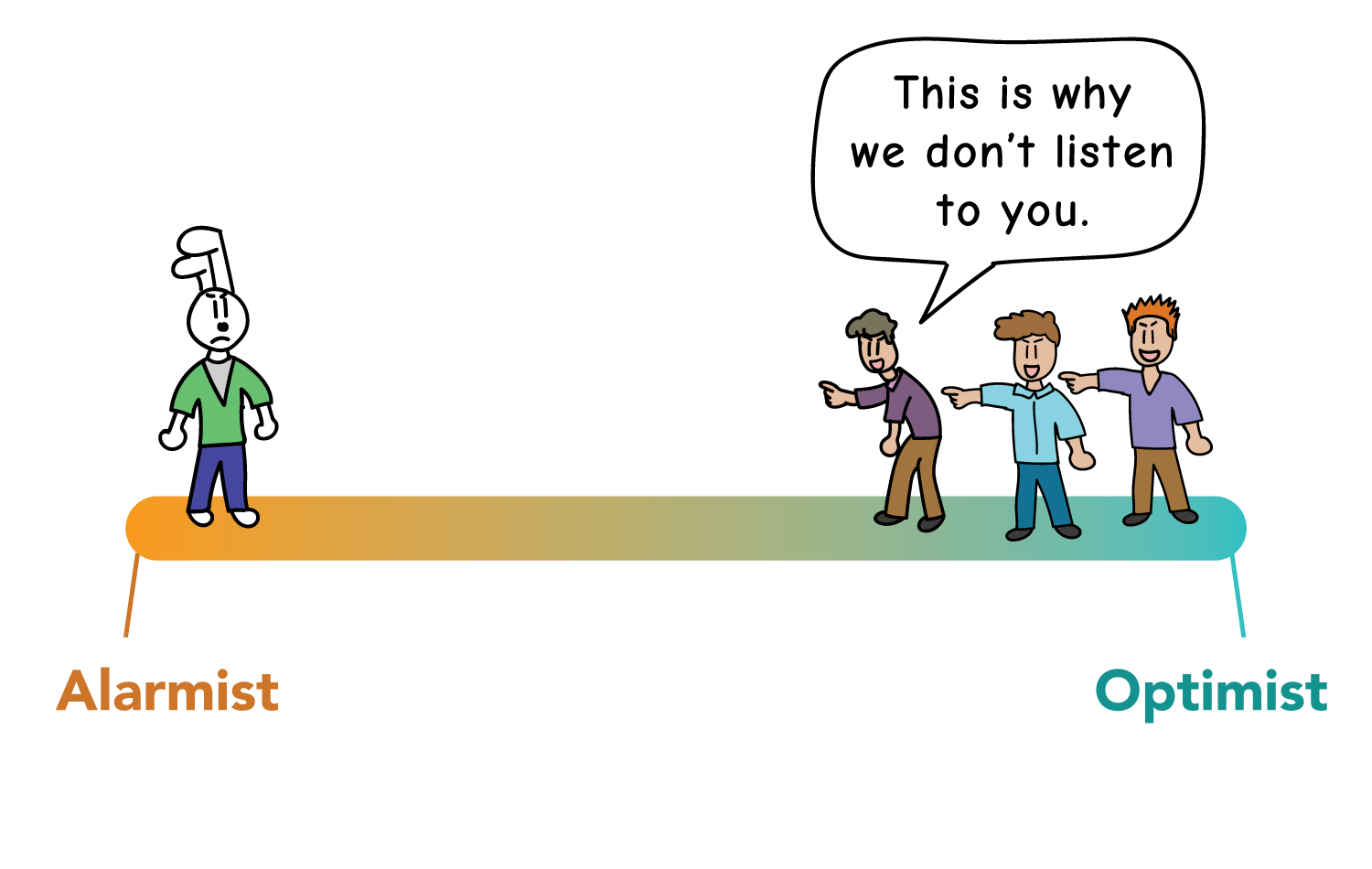 The other side is no better. If you’re optimistic about everything and live life as usual, you might get yourself sick and spread the virus to others. This will make you seem deeply irresponsible, and you’ll be chastised for it too.
The other side is no better. If you’re optimistic about everything and live life as usual, you might get yourself sick and spread the virus to others. This will make you seem deeply irresponsible, and you’ll be chastised for it too.
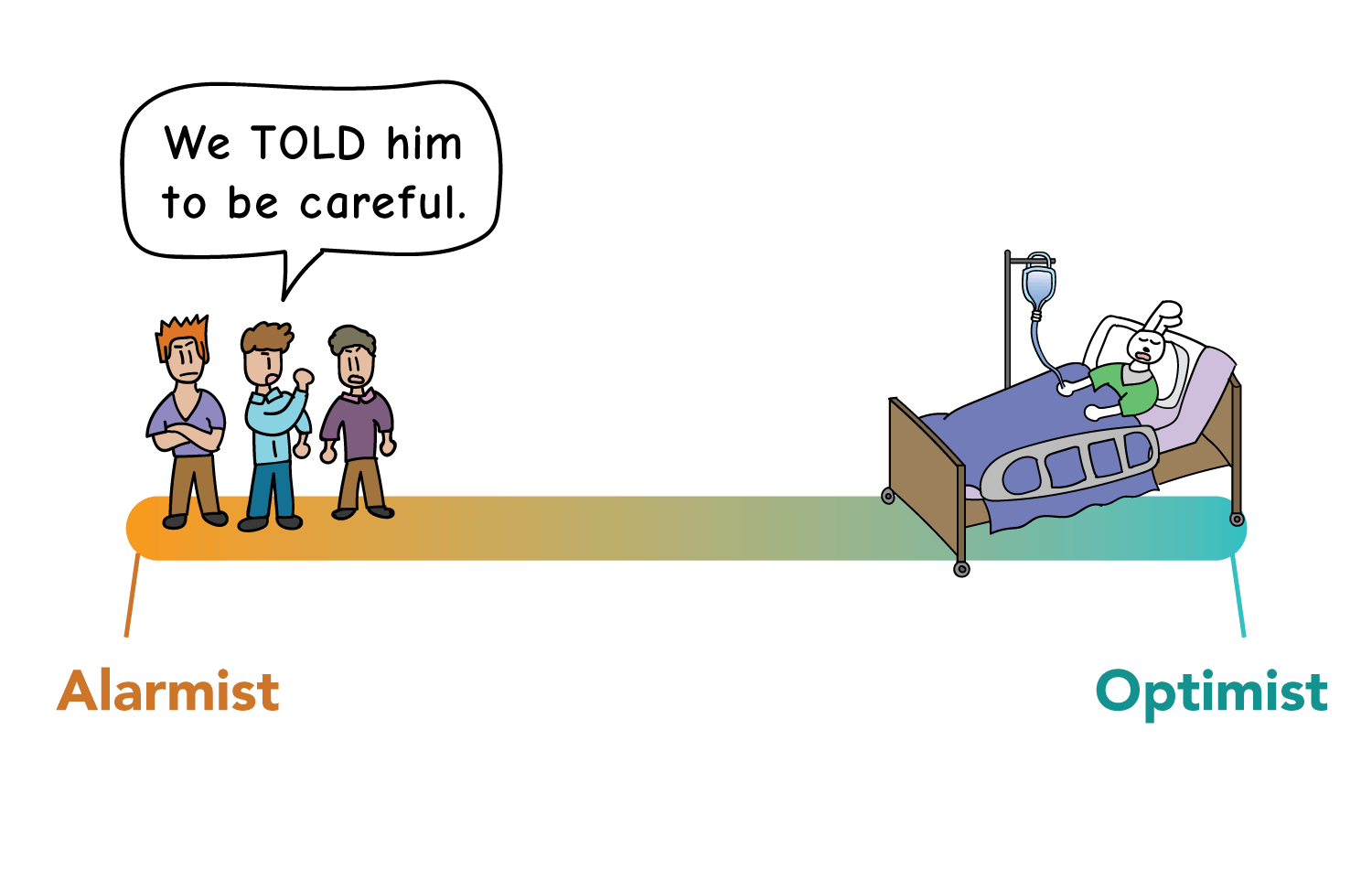 In the case of a pandemic, the cost of being wrong as an alarmist is your reputation, while the cost of being wrong as an optimist is your health.
In the case of a pandemic, the cost of being wrong as an alarmist is your reputation, while the cost of being wrong as an optimist is your health.
Keeping this in mind, I needed to inform myself of where I stood, so I started listening to podcasts and reading articles about how serious this was. What I quickly realized was that the spectrum was more nuanced than I originally thought, and actually looks more like this:
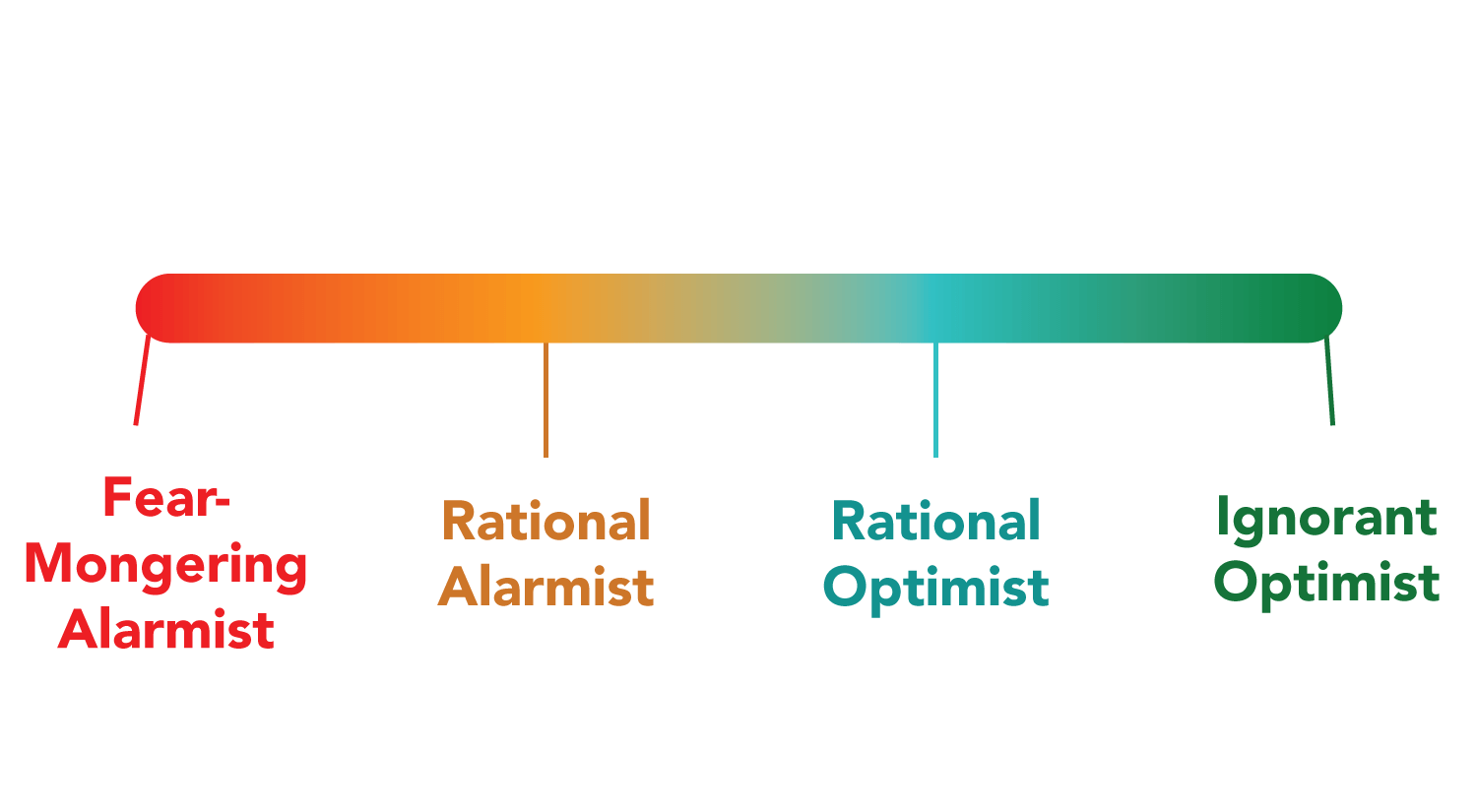 As the virus made its way to the United States (I live in California), headlines were sensationalized, and opinions were polarized. However, it was clear that the consensus among epidemiologists was that this was indeed serious, and it was time to take the proper precautions.
As the virus made its way to the United States (I live in California), headlines were sensationalized, and opinions were polarized. However, it was clear that the consensus among epidemiologists was that this was indeed serious, and it was time to take the proper precautions.
I communicated my concerns to my wife, and we decided to practice social distancing and stay at home as much as possible. We had a game plan, and it was based on an informed take of all relevant data, expert opinion, and a dash of intuition as well.
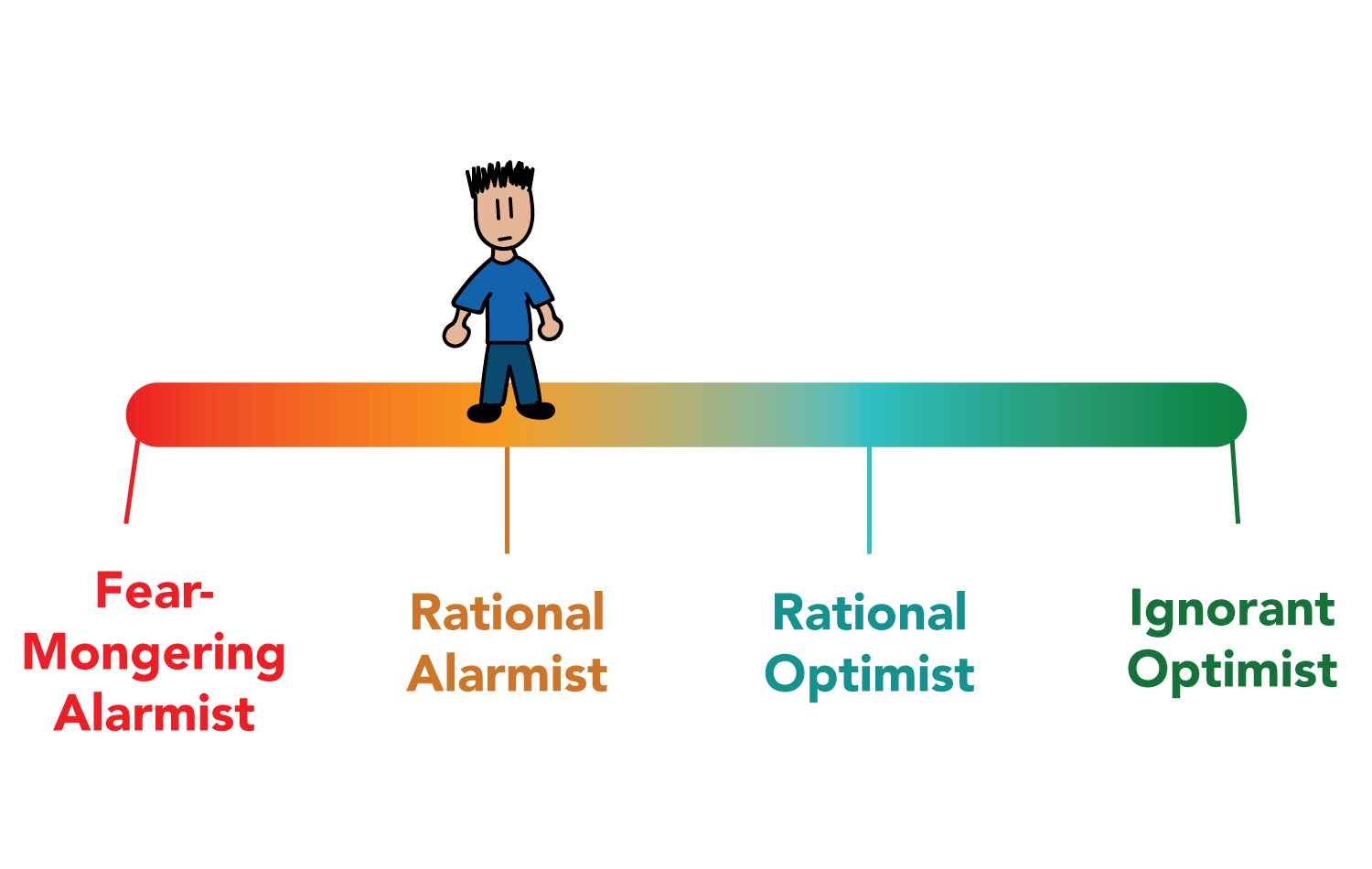 This is where the utility of anxiety and information consumption ends. If you’ve already constructed a plan based off everything you’ve read and learned, then I suggest that you take your attention off of the virus and direct it to more fruitful things.
This is where the utility of anxiety and information consumption ends. If you’ve already constructed a plan based off everything you’ve read and learned, then I suggest that you take your attention off of the virus and direct it to more fruitful things.
I had to learn this the hard way. Even after knowing what to do next, I couldn’t help but to read about how many people were getting the virus each day, and check out opinions of how bad this was. On top of that, I kept checking the stock market to see how it was responding to everything, further increasing my anxiety about it all.
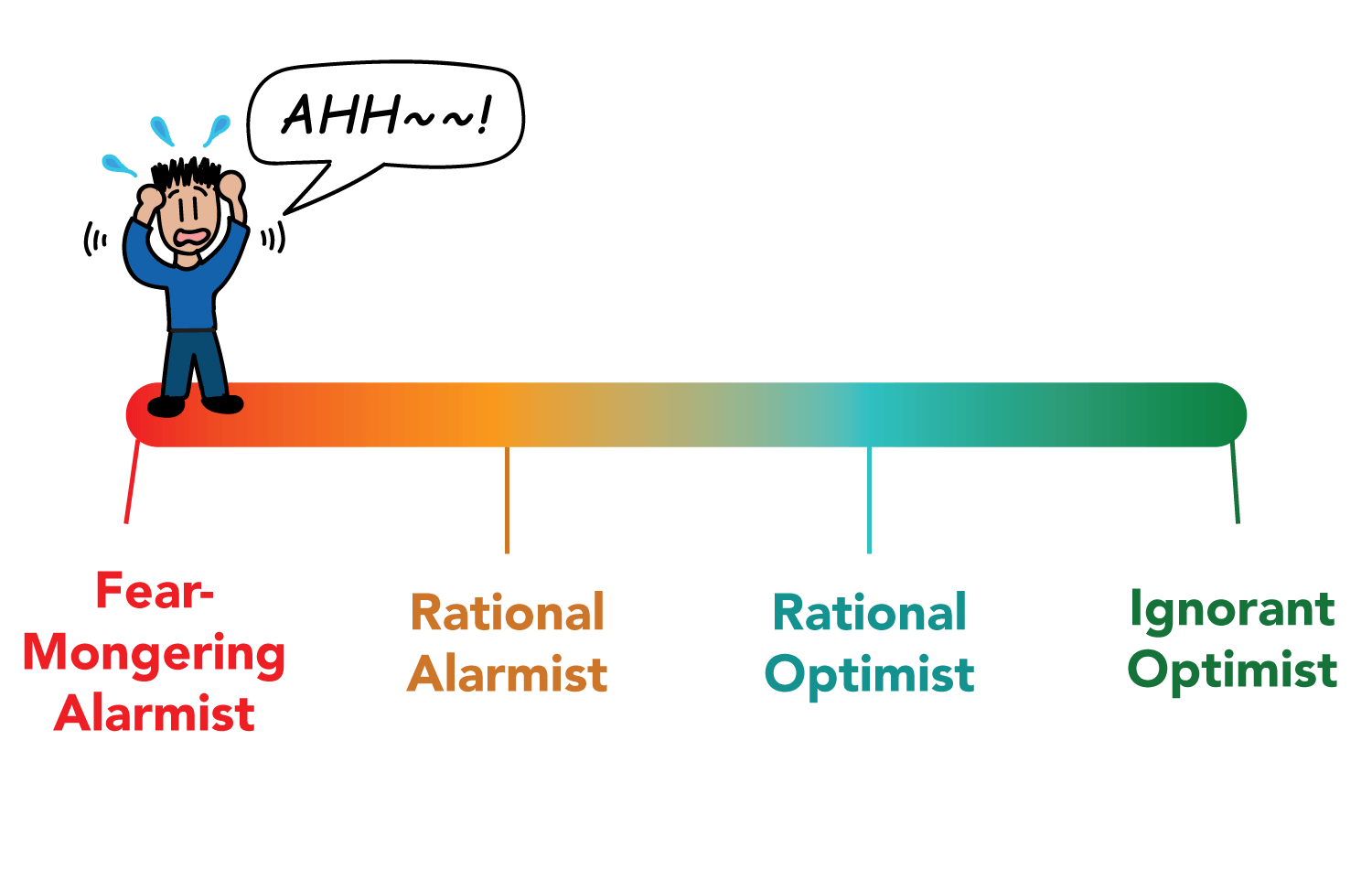 This is self-destructive anxiety, as there is no use or purpose to it. Anxiety was helpful in moving me to become informed and develop a plan, but it doesn’t do anything but deteriorate my mind after that.
This is self-destructive anxiety, as there is no use or purpose to it. Anxiety was helpful in moving me to become informed and develop a plan, but it doesn’t do anything but deteriorate my mind after that.
The character of our thoughts are shaped by the texture of the information we consume. Finding peace in a chaotic time is about using information to act as a guidepost for navigating that chaos, but setting it aside once it has served that purpose.
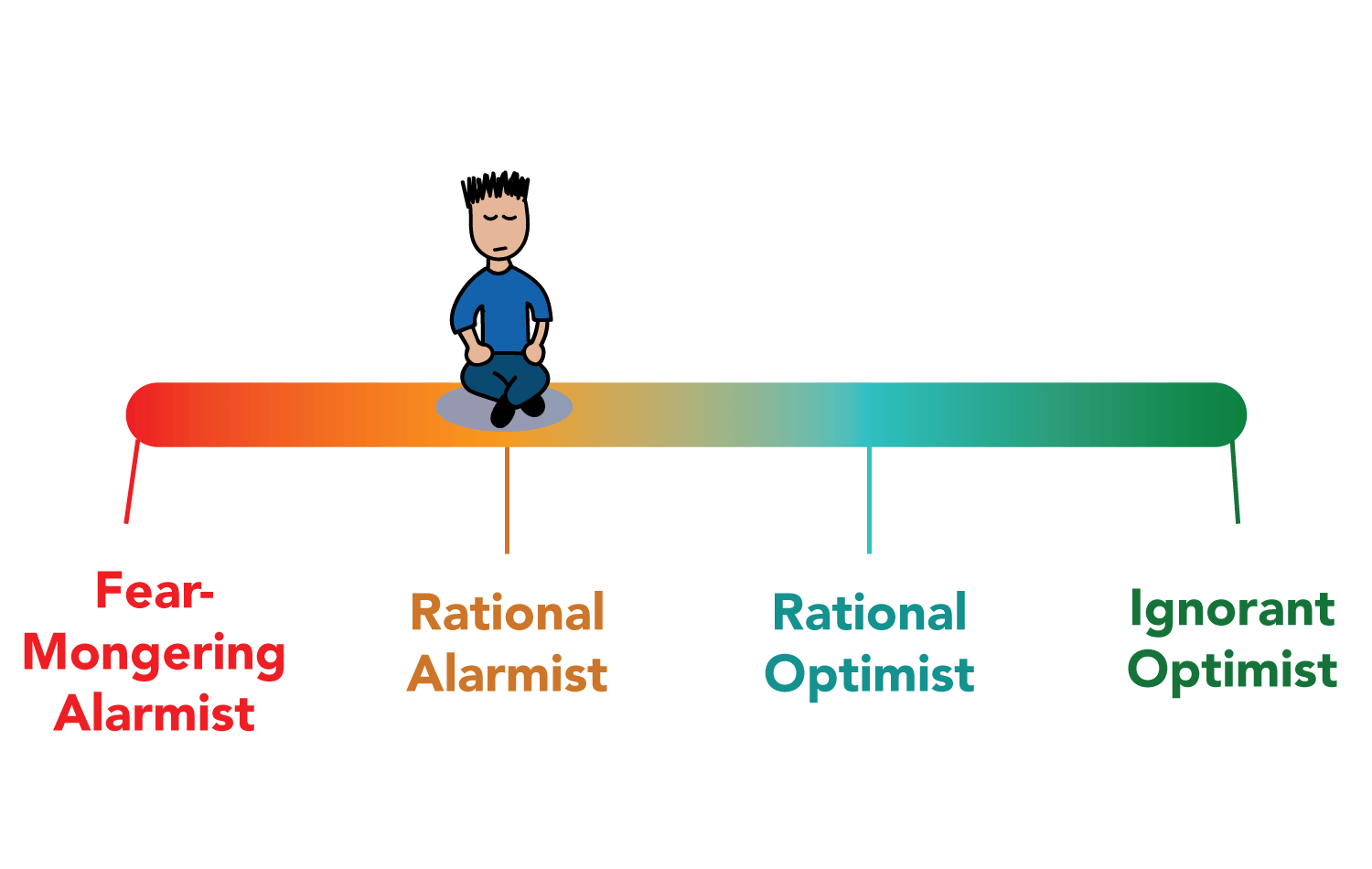 Be intentional with what you read and watch, instead of allowing fear to drive the nature of your curiosity.
Be intentional with what you read and watch, instead of allowing fear to drive the nature of your curiosity.
(2) Maintain daily habits and keep the mind engaged.
At this point, you have probably made some changes to your lifestyle that are glaringly evident. You are one of countless many that have canceled travel plans, transitioned to remote work, or placed themselves under a quarantine at home. It’s one thing to take a personal day to stay indoors; it’s another to know that everyone else in your city is doing it with you, with no known return date in sight.
It’s jarring to remove the familiar hum of your daily routine and strip away the background noise of usual life. Home is a place where you typically start your mornings and end your nights, but now you’re watching the afternoon go by in a venue that seems foreign at that time of day.
These changes may feel like a sudden reversal of what you’ve grown accustomed to, and can introduce restlessness. If left unchecked, this can quickly turn into drudgery, which paves the way for a sedentary body and a disengaged mind.
Inactivity is the destroyer of peace, so you must find ways to keep the mind and body in motion. The only way to cultivate peace is to actively engage in the things you find worthwhile, and fortunately, this can be done anywhere, even within the walls of your home.
Keep up the daily habits and routines you had, but shift the location to where you are now. Everything you did at the gym can be replicated to a large extent in or around home. Remain committed to setting specific hours of each day to do your work. Carve out both the time and attention to watch fun movies or play games with your family to keep the mind from drifting away into fear.
How you spend your days will determine how you perceive the world. Structure your habits wisely.
(3) Social isolation will make you realize how precious human connection really is.
I was on a video call with my parents the other day, and they were telling me how all of Korea is essentially locked down. They were in their pajamas on a bright afternoon at home, and I was sporting my pajamas halfway across the world in a different time zone as well.
It made me realize that the practice of social distancing isn’t limited to just one geographic region; there are millions of people all over the world that are currently confined to their apartments and homes.
We love to beat down on technological progress and the way it’s distancing our attention away from one another, but this kind of isolation is remarkably different. When you take away the option of occupying the same physical space as other humans, you can feel the poverty of connection in a deep way.
Of course, not being able to see your loved ones is a bummer, but so is the inability to go to your local library and simply be around others. Sometimes the only way to realize the importance of an everyday experience is to put a barricade around it, and sadly, that’s what’s necessary to contain this health scare.
We are in the midst of a global social experiment; one in which we are isolating ourselves now so we can be together in the future. Many sacrifices have to be made, but on the flip side, we have the unique opportunity to be still for a moment and reflect on how grateful we are to have the relationships we have.
While we all want to know when this virus will pass, the bigger question is how will we use our minds until that day comes. If we spend tomorrow and each subsequent day in fear, we will re-enter a world that was just as restless as before the pandemic struck.
But if we spend tomorrow in peace, we will re-enter the world with a renewed sense of gratitude that only sustained reflection can instill.
Until then, I wish you good health during this time of uncertainty.
Please be safe.
_______________
